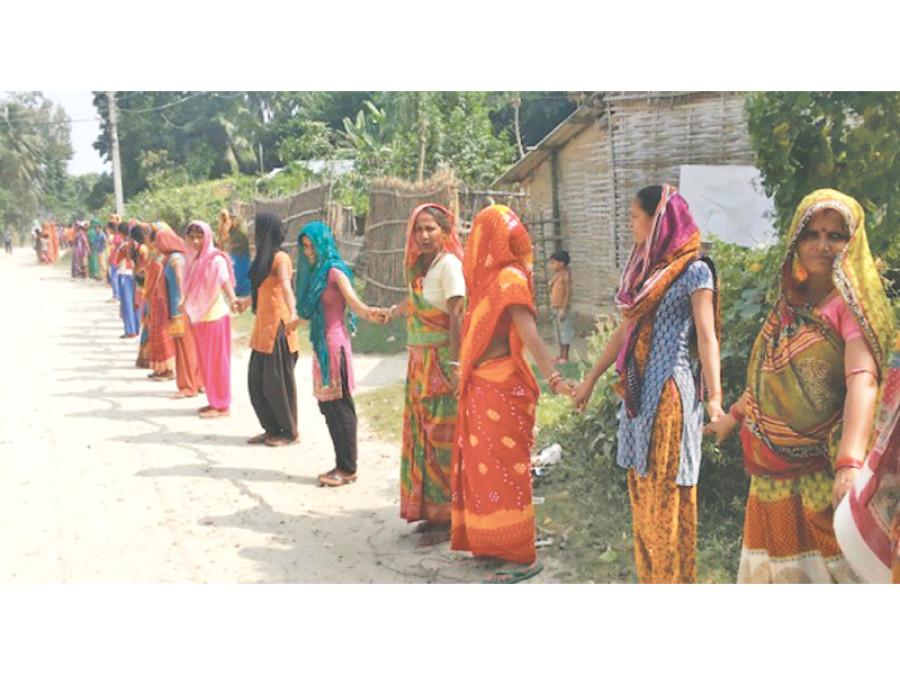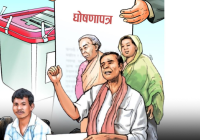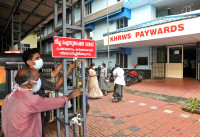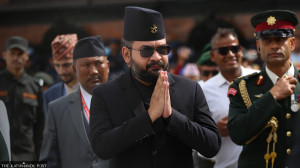Opinion
Please the plains
Madhesis are as Nepali as anyone else, so the government must address their concerns
Bhabes Kumar Labh
The April earthquake, despite claiming thousands of lives, helped bolster social harmony by the bringing people of the Madhes and Pahad together. People in the Tarai-Madhes collected food and medicines and distributed them in the hills. Likewise, Madhesi youths from different political and social organisations participated in humanitarian relief work in the quake-hit districts. But of late, it looks as though, a bigger calamity than the destructive earthquake could occur in the country if the simmering ethnic tensions between the Madhesis and Pahadis are not contained.
The ongoing Madhes movement along with the ‘unofficial blockade’ of the customs points by India seems to have redefined the Madhes-Pahad relations. The views expressed by the people on social media platforms and the media point to a widening rift between the Madhes and Pahad. The new constitution seems to have planted a wedge between the people. The new statute failed to address the concerns of the historically marginalised communities with regard to proportional representation, number of constituencies, and state formation. But even when a curfew was clamped and security personnel were firing indiscriminately at demonstrators in the Madhes, the rest of the country was celebrating without any sympathy or concern for them.
Madhes and Pahad
Those criticising the current Madhes movement claim themselves to be true nationalists and patriots, while those supporting it are being antagonised and portrayed as Indian agents. Even the mainstream media has utterly failed to truly represent the movement and its causes. The deepening dichotomy between the Madhes and Pahad is certainly going to pose a serious threat to the wellbeing of the nation in the long run. These two social groups appear to be so polarised that it will be a huge challenge for the state and civil society to reconcile them. The country badly needs a unifying national figure that can rise above the interests of any political party or community, and help promote harmony and peace by bringing the Pahad, Madhes and all the other discontented communities together. But it seems as though no one is concerned about it. And who is going to benefit from this communal dichotomy?
A few power-hungry politicians are hell bent on fueling this ethnic tension to serve their own vested interests. Some politicians purportedly gave provocative speeches in Kailali to incite ethnic animosity. A fair inquiry should be conducted in this matter, and the culprits should be brought to trial. Security personnel who deliberately shot demonstrators in the head and chest; those involved in the lynching of seven police personnel in Tikapur, Kailali and others who set fire to the houses of some Tharus after that barbaric incident, must all be punished. All of these amount to serious human rights violations.
Fuel in fire
The Madhes-based parties, that lost miserably in the second Constituent Assembly election, are certain to consolidate their presence in the plains through this movement. But the unofficial trade blockade by India has added a new dimension to the Madhesi struggle. All focus has shifted to India. However, it is still not clear whether India is pressuring Nepal to support the Madhesi agenda or its own vested interests. But one thing is for sure: this move made by India has undermined the Madhesi cause.
The blockade has provided the Pahade community an opportunity to unleash its anger and disgust at the Madhesi people, consequently alienating them further. It has also given people a golden opportunity to display their nationalism by cursing India. Some leaders of the three big political parties know very well that the more they spread anti-Indian and anti-Madhesi sentiments, the more likely they are to rise as pseudo-nationalist figures. Therefore, they do not hesitate to publically criticise and taint the Madhes movement. Some of them are terming it as a provocation by India. They refuse to recognise the demands of the denizens of the Madhes.
Take responsibility
Recently, 1.9 million Madhesis demonstrated on the Hulaki Highway by forming a human chain stretching from the east to the west of Tarai-Madhes. But for Comrade Oli, who is now the country’s prime minister, this was merely a ‘chain of flies’. And the Madhesi demonstrators who were killed were merely ‘ripe mangoes’ from the Indian states of Uttar Pradesh and Bihar. Former Prime Minister Sushil Koirala and the UCPN (Maoist) chairman Pushpa Kamal Dahal ‘Prachanda’ have revealed their short-sightedness and lack of capacity to solve the current national crisis.
To date, more than 40 demonstrators have been killed by the security forces. The whole region is reeling under a humanitarian crisis. Are the people living in Tarai-Madhes not Nepalis? Isn’t it the duty of the government to ensure safety and justice to them? Why don’t members of civil society and self-proclaimed national champions of human rights come forward and speak for their rights too? This is the time to perform a real Hindu forgiveness ritual, and not a parody, at the Pashupati Temple to ask for forgiveness for the rulers in Kathmandu for their sin of killing more than 40 Madhesis, injuring dozens and unleashing state-sponsored terror for nearly two months.
Nonetheless, just 17 days after its promulgation the sheer power of the Madhes movement has forced the government to propose two amendments to the new constitution. It remains to be seen whether they will appease the demonstrators or not. They are fighting for dignity, identity and space in the national arena to prove that they are by no means less capable, nationalist or patriotic than anyone else. There is still time to reach out to the disgruntled parties, convince them, and bring all Nepalis—irrespective of their complexion, ethnicity or religion—on board.
Labh is a lecturer at Saraswati Multiple Campus, Kathmandu




 11.12°C Kathmandu
11.12°C Kathmandu










